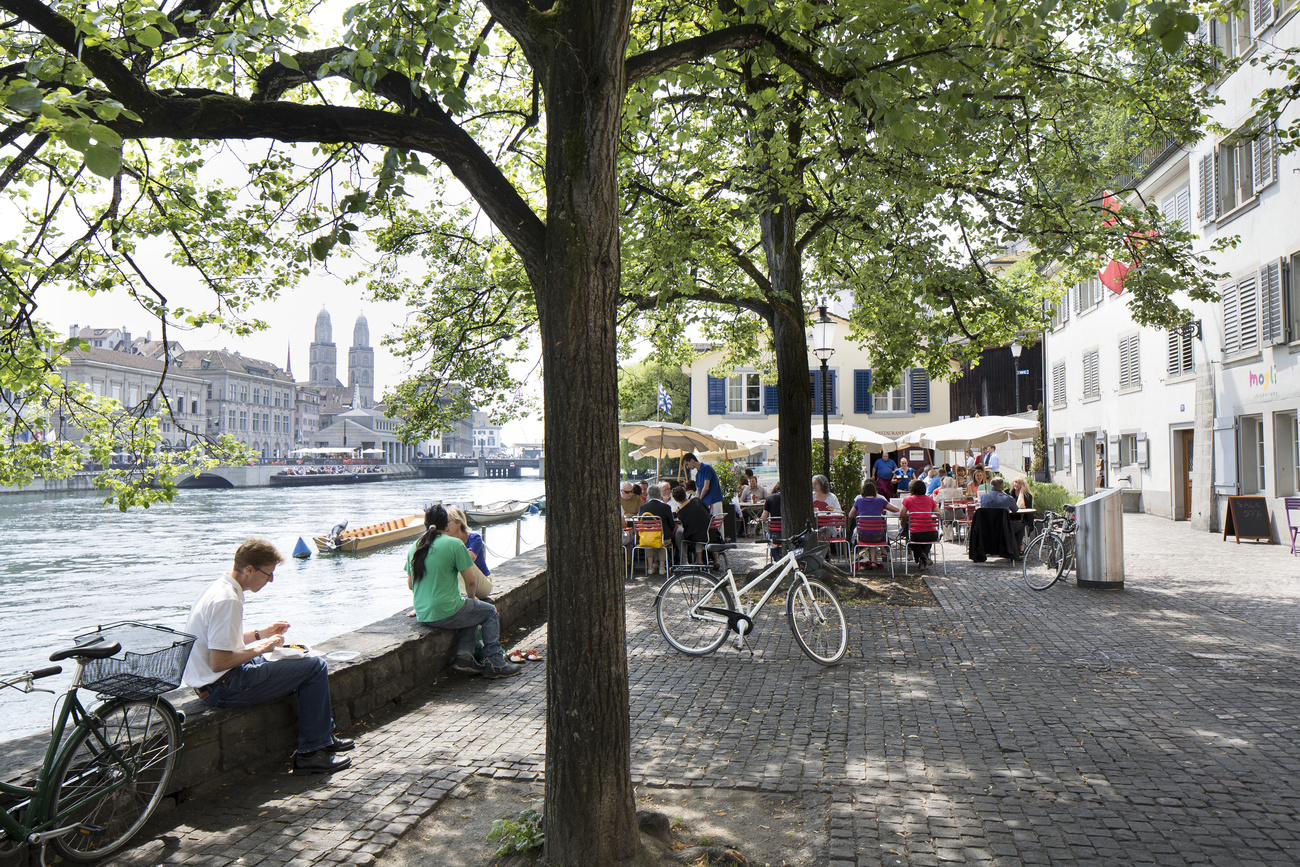Zurich pastor says world must wake up

Ernst Sieber, a tireless champion of the homeless in Switzerland, says Easter should be seen as an occasion to address global political and economic realities.
The 80-year-old pastor tells swissinfo that the poor and marginalised need not only food, but also love. His vision is for a world that is more just and shows solidarity.
Switzerland’s best-known pastor also says he would like the needy to recover their dignity and self-esteem.
swissinfo: What does Easter mean to you?
Ernst Sieber: I associate Easter with the resurrection of Jesus Christ. This is what Christians also expect for themselves. Jesus said: “Whoever believes in me, even if he dies, will live, and whoever lives and believes in me will never die.”
Easter will have the power to cause a revolution if we see the resurrection in the light of the current political and economic realities. The world must wake up and see that the needy require both food and love. Easter is here and now.
swissinfo: What is faith for you?
E.S.: I can explain it in a story. A pastor goes to a farmer who has dug up his garden. The pastor sees green plants growing and says: “God and you have achieved a lot”. And the farmer replies: “Yes, but you should have seen the garden before I went to work on it.”
What this means is that we are tools in the hands of Jesus Christ not only in the liturgical, spiritual meaning, but also in the material and worldly sense. That we create things with love and dignity. It is only in this way that we can build a better and more just world.
swissinfo: Are you worried about the clash of religions?
E.S.: I was in Afghanistan [an Islamic country], and there I met a group of lawmakers. One of them came to me and opened his hand. In it was a small silver cross that he had found in an ancient grave. “I would like to give this to you as a sign of respect,” he told me.
In Afghanistan, I found that divisions along religious lines played no part when people came together in love. And whoever says that Jesus resisted such friendship and reconciliation is on the wrong track.
swissinfo: A few weeks ago, nearly 2,000 people of all ages, including prominent politicians, attended a service to mark your 80th birthday in Zurich’s Grossmünster cathedral. Were you moved by this show of affection?
E.S.: I was happy there were so many people because I never expected it. They were people whom I had met in one place or another over the years.
I was moved that Christ was also present – even though a number of dogs barked in the middle of my sermon!
swissinfo: You are known as a person who wants immediate social aid without red tape. The head of the Zurich social welfare department, Monika Stocker, has called you “a populist of God”. Are there any problems there?
E.S.: If there were no problems, something would be wrong with the Christian church system. Incidentally, Monika calls me “Brother Ernst” and so I now call her “Sister Monika”. And what did “Sister Monika” recently say? “The state cannot love.”
swissinfo: You recently said that it would be best if social assistance were abolished.
E.S.: Exactly, because the state cannot love. I ask you this – can people live on bread alone or is love one of their main needs? I want to help the homeless and marginalised not only by giving them bread but more importantly by giving them back their dignity and self-esteem.
swissinfo: You are 80 years old and still going strong. Where does your energy come from?
E.S.: Look outside. The sun is shining and that charges up my batteries. Every meeting with people gives me energy. I give something but also expect and receive something in return. Then there are my staff and my wife who have always supported me. My eight children have also been with me along the way. There’s of course my daily prayers too. That’s a must. I follow God’s word, even if it causes a problem.
swissinfo: We live in a world of wars, poverty, misery and violence. There are homeless and marginalised people in a rich country like Switzerland. Has God failed us?
E.S.: No. People expect God to do everything, that he makes the state a welfare state. That is not possible.
With the death of Jesus on the cross, God showed people the strength required to create a peaceful world.
Now it is time that we do something. We must try to save the world today, not tomorrow. I am not angry with God but rather amazed that he is not angrier with people.
swissinfo: As a pastor of the homeless you have given your all for decades and lived for others. Have you received anything in return?
E.S.: Everlasting life today. I’m thinking of my last church service or my meeting with you now. Is there anything more beautiful than to meet humans who hope for a better world, humans who know that love is stronger than death?
swissinfo-interview: Jean-Michel Berthoud
Ernst Sieber was born on February 24, 1927 in Horgen, near Zurich.
After leaving school in 1950, he went on to study theology and was ordained a pastor in 1956.
In 1987, he was awarded an honorary doctorate from the Zurich University theology faculty.
He was the pastor at Zurich Altstetten until 1992.
He is married to singer Sonja Sieber-Vasalli. They have eight children.
Ernst Sieber is a father figure for the homeless people of Switzerland.
In the extremely cold winter of 1963, when temperatures dropped so much that Lake Zurich froze, the pastor set up a place for homeless people to sleep.
In the 1980s, he launched a crusade against drugs in Zurich that paved the way for him to become a member of the House of Representatives for the Protestant Party from 1991 to 1995.
At the peak of his activities, Sieber’s social programme included shelters, homes and meeting places in four cantons.
Rocked by a financial scandal, the SWS foundation risked bankruptcy at the end of 1994 but was saved by intervention from the state and church, and by donations. Sieber was forced to resign as head of the SWS but stayed on as its honorary chairman.

In compliance with the JTI standards
More: SWI swissinfo.ch certified by the Journalism Trust Initiative









You can find an overview of ongoing debates with our journalists here . Please join us!
If you want to start a conversation about a topic raised in this article or want to report factual errors, email us at english@swissinfo.ch.